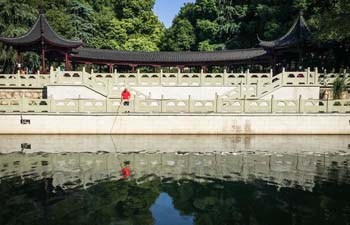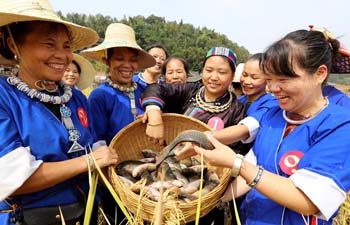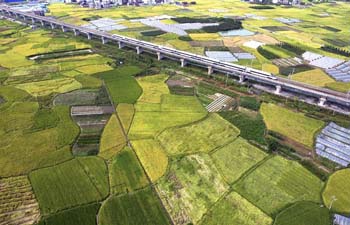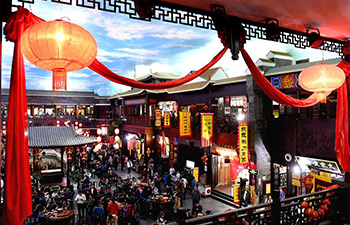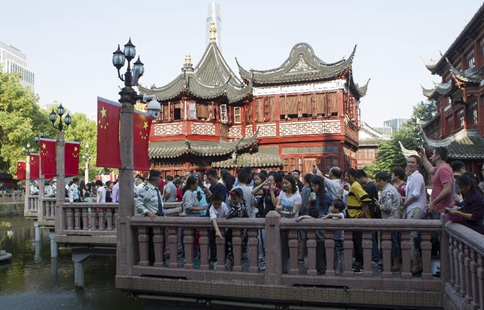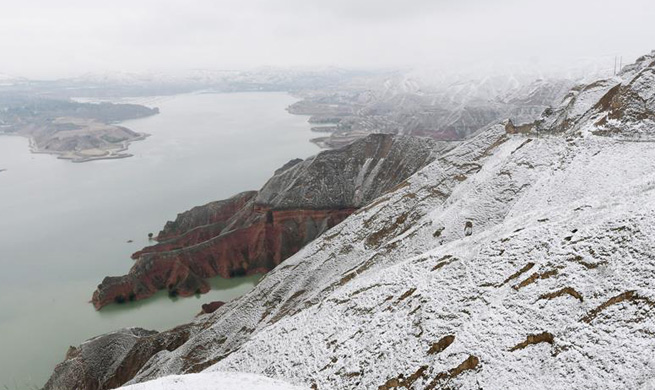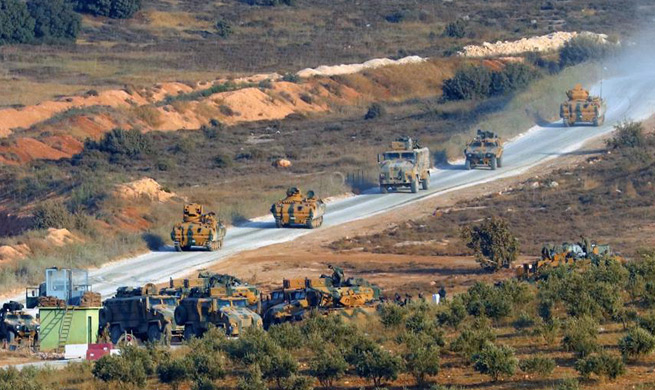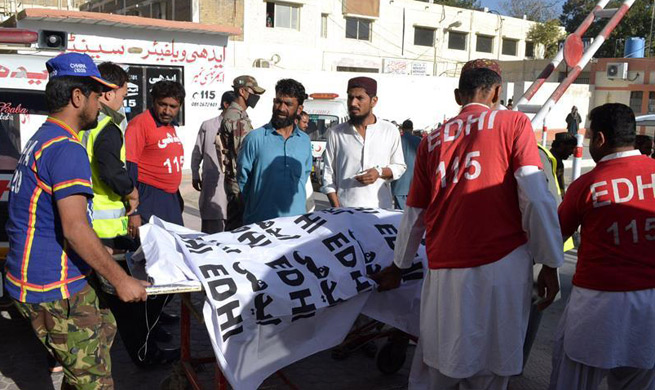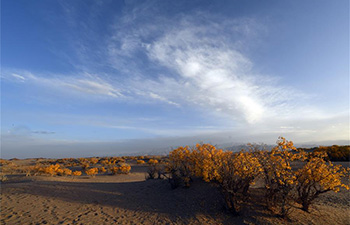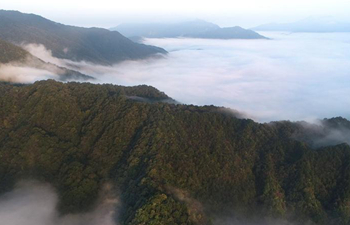by Alexia Vlachou
RHODES, Greece, Oct. 6 (Xinhua) -- International influence is shifting from West to East and "we must build peace with new responsible stakeholders," former French Prime Minister Dominique de Villepin said here Friday, underlining the crucial role of China and Russia in world affairs.
"International influence is restructuring around regional powers, with a shift from Western to Eastern countries," de Villepin said at a prestigious international forum on the Rhodes Islands in Greece.
The shift can be seen with the Astana process in dealing with the Syrian crisis, as well as initiatives from both China and Russia in easing tensions on the Korean Peninsula, he added.
"This has to be a good news because we need both more and new responsible stakeholders in the world community," he said.
The Astana process refers to talks held to resolve the Syrian civil war in Astana in January 2017 with Kazakhstan offering its capital as a neutral venue.
On July 4, China and Russia issued a joint statement on the issue of the Korean Peninsula.
The two countries put forward a roadmap on the basis of Russia's step-by-step approach, and China's dual track approach and suspension for suspension initiative.
De Villepin was addressing the two-day 15th Rhodes Forum that opened Friday, gathering politicians, public thinkers and business leaders from some 70 countries and regions to discuss multipolarity and dialogue in regional and global developments.
China is a primary contributor of troops to UN peacekeeping missions, he said.
De Villepin also said the China-proposed Belt and Road Initiative "is likely to develop and stabilize the countries and regions it will cross."
The former French prime minister also stressed the role of Russia as a "crucial actor for world order," mentioning Russian mediation in Syria, eastern Europe and the Korean Peninsula.
Meanwhile, he underscored the need for dialogue in times of crisis.
"Uncertainty has become the trademark of our time," he said. "The question of our time is how to avoid uncertainty... In times of escalation, we cannot take the risk of frozen conflicts heating up at any moment."
"A joint initiative by a few large countries in order to reflect together on the new multipolarity ... would also be a way of reviving the power of dialogue, which is more than ever before a global necessity," said de Villepin.
DARK SIDE OF NEW TECHNOLOGY
Another major issue discussed at the forum was the role played by new technology, which was a blessing that could also have a dark side.
During the first day of the forum, many participants expressed their concern over new technologies, which some said can enable individuals to do things only countries could do before.
"We live in this paradoxical moment where we know more, we have more capabilities and yet, we are more confused," said Ian Goldin, professor of globalization and development at the Oxford University and former vice president of the World Bank.
For Goldin, pandemics are the biggest global threat. "Even a single individual can now create a bio-pathogen and fly down to high streets and (the) banking sector and create a global pandemic. Small groups of individuals can destroy the Internet, can create problems to big institutions," he said.
The best way to resolve these problems is by working together, he added.
Russian entrepreneur Natalia Kaspersky, who is also head of InfoWatch, a software producer, underlined the importance for countries to have digital sovereignty. Countries with no digital sovereignty will be in a vulnerable position and become victims of digital colonization, she warned.
"Digital colonization is a new form of colonization," she said. "Countries that want digital independence should join forces to replicate their own technologies."
The annual forum, organized by the Dialogue of Civilizations Research Institute, an independent international think tank, was attended by high-profile figures from Europe, Russia, China, India and Africa.
Held each year since 2002, the Rhodes Forum is intended to provide a platform for business people, policy makers and scholars to discuss pressing issues on the international agenda.




